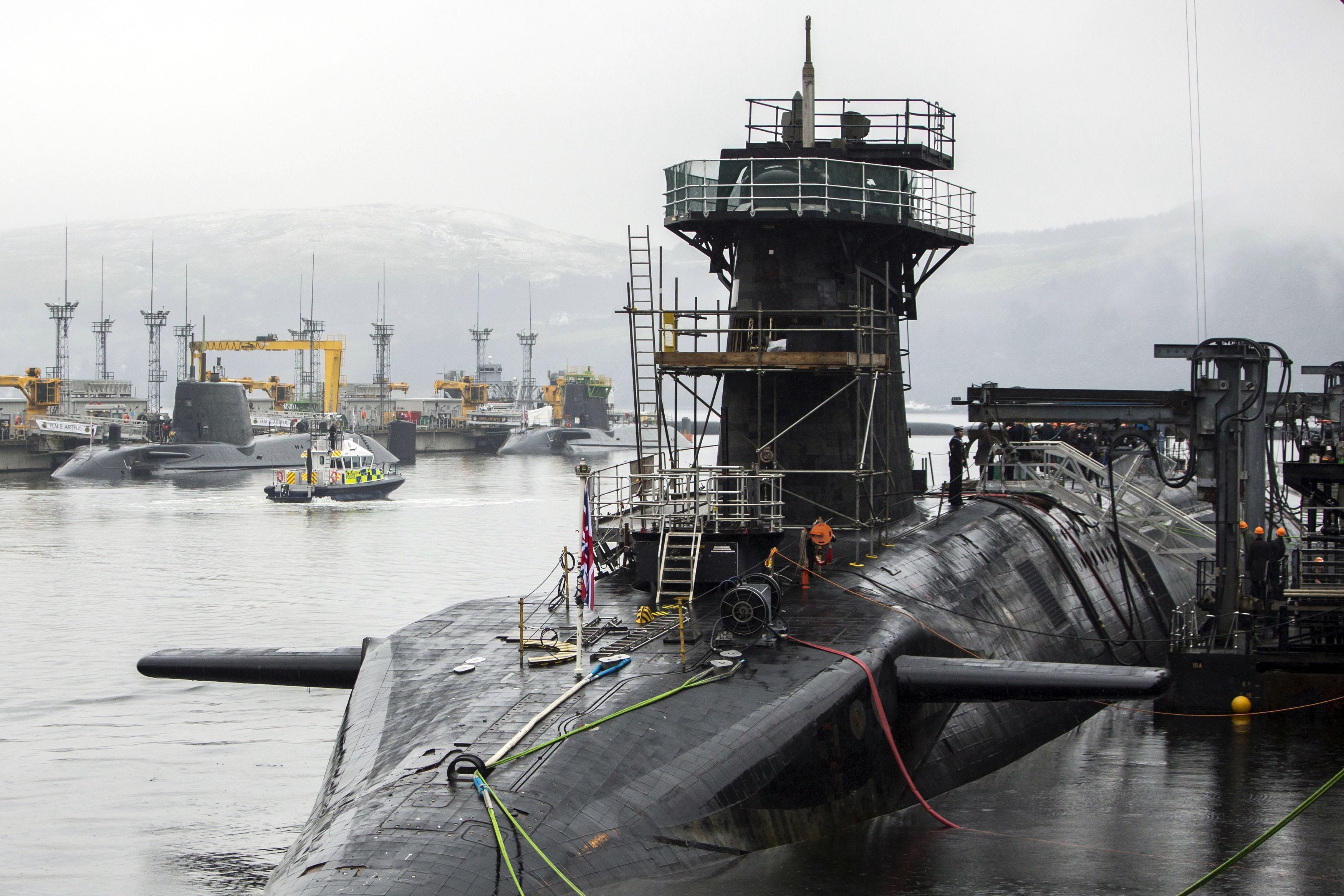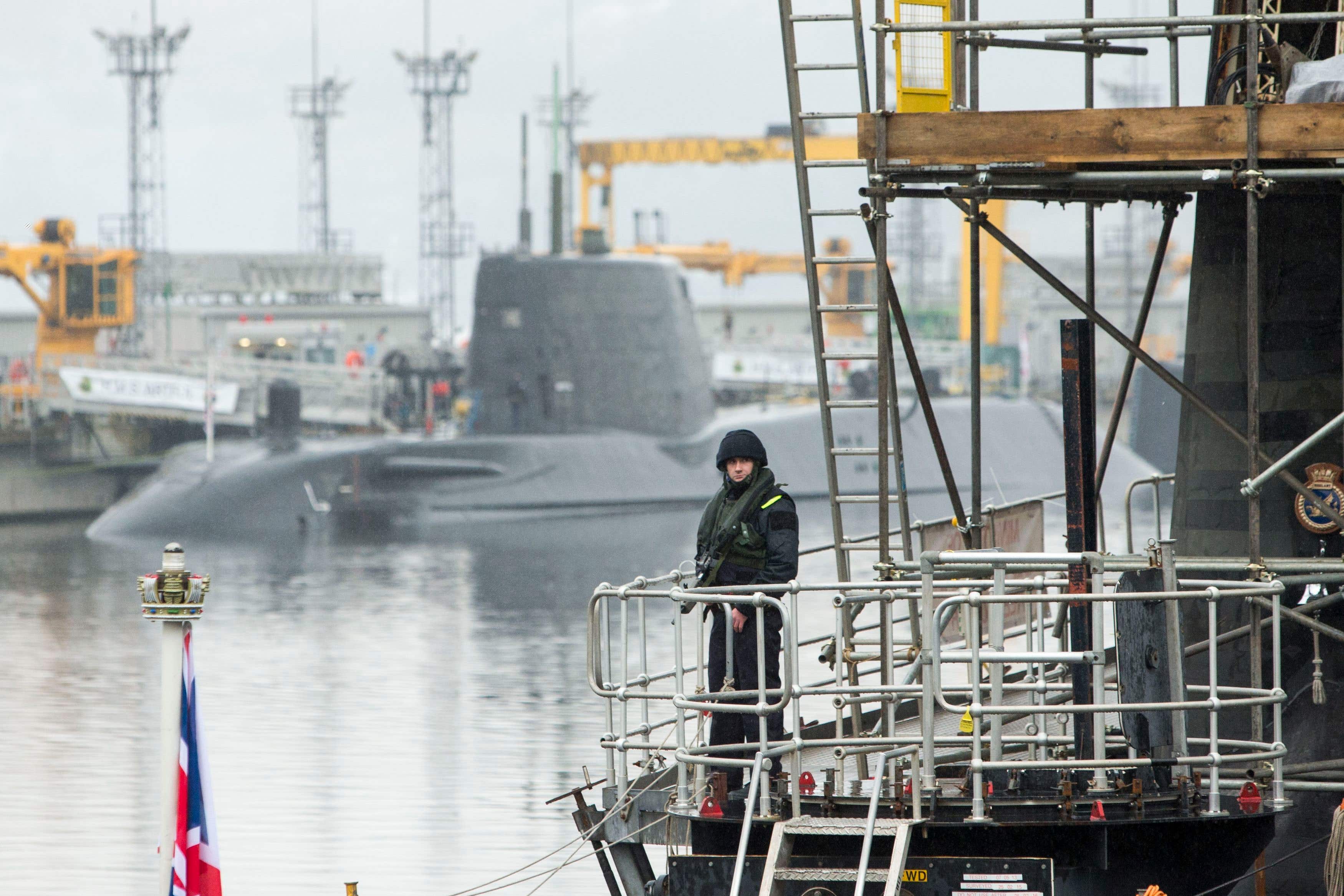Crew members on Royal Navy nuclear submarine left with ‘low supplies’ and suffering fatigue
Medics reportedly feared for a ‘serious loss of life’ after plans to resupply the vessel failed to materialise

Your support helps us to tell the story
From reproductive rights to climate change to Big Tech, The Independent is on the ground when the story is developing. Whether it's investigating the financials of Elon Musk's pro-Trump PAC or producing our latest documentary, 'The A Word', which shines a light on the American women fighting for reproductive rights, we know how important it is to parse out the facts from the messaging.
At such a critical moment in US history, we need reporters on the ground. Your donation allows us to keep sending journalists to speak to both sides of the story.
The Independent is trusted by Americans across the entire political spectrum. And unlike many other quality news outlets, we choose not to lock Americans out of our reporting and analysis with paywalls. We believe quality journalism should be available to everyone, paid for by those who can afford it.
Your support makes all the difference.Medics on a Royal Navy nuclear submarine were reportedly left fearing a “serious loss of life” after crew members were forced to share food when supplies ran low.
During a six-month patrol, crew began to suffer from fatigue with mistakes caused by concentration lapses, while the vessel closed its honesty shop over fears of hoarding.
Navy chiefs reportedly asked the crew to hand in any supplies of chocolate or sweets and off-duty sailors were instructed to sleep to conserve calories and limit their movements.
A source told The Sun: “It was miserable. If you weren’t on watch your movements were limited to conserve energy and encouraged to sleep to burn less calories.”
They added: “Medical staff raised concerns about a serious loss of life due to fatigue and people either not concentrating or falling asleep on critical duties.”

The Vanguard-class vessel, which has not been named for security reasons, had been due to resupply at sea but had been unable to do so.
A former submarine captain said the conditions onboard the vessel were “horrific”.
Due to the shortage of available submarines, patrols have been extended for six-months rather than the usual customary 80 days.
One submarine, which forms part of the UK’s nuclear deterrent force, is always on patrol with their location remaining top secret, with sailors only allowed to receive one 40-word message each week that is censored for bad news.
The Royal Navy has emphasised that robust practices and procedures are always in place to ensure the safety of its crew on operations.
It comes three weeks after the head of the Royal Navy apologised after an investigation found “misogyny, bullying and other unacceptable behaviours” in the submarine service.
There was at least one report of rape, and women suffered lewd comments and sexual gestures, an official report has revealed.
Join our commenting forum
Join thought-provoking conversations, follow other Independent readers and see their replies
Comments